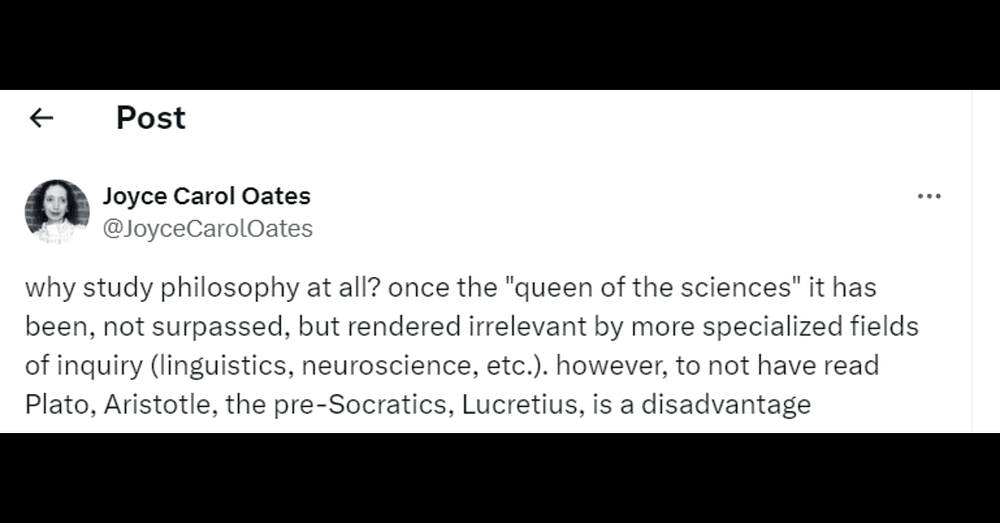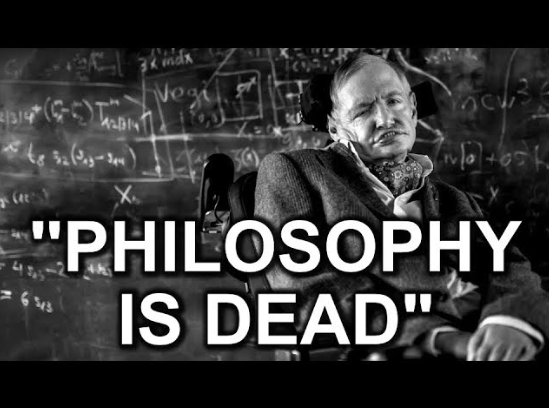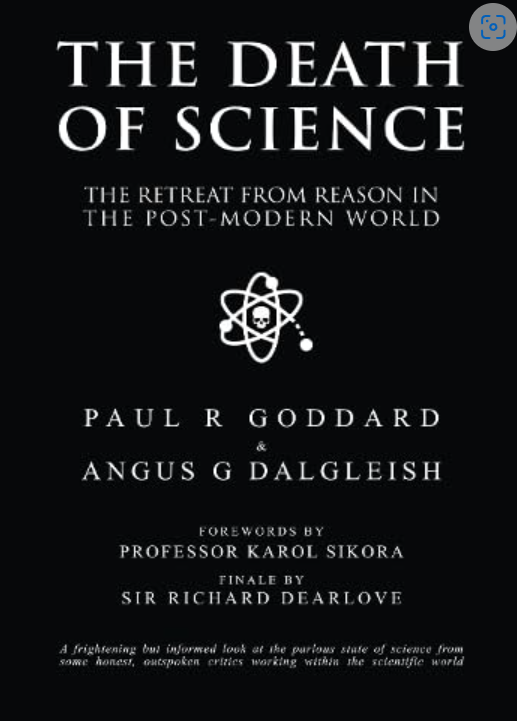The American writer Joyce Carol Oates offers her ‘Followers’ (on X) the words in the screenshot below. They seem to be a variation on Stephen Hawking’s often-quoted “philosophy is dead” mantra.

Why did Stephen Hawking believe that philosophy is dead?
He did so mainly because he believed that “philosophers haven’t kept up with physics”. The following is the passage in full:
“Traditionally these are questions for philosophy, but philosophy is dead. Philosophy has not kept up with modern developments in science, particularly physics. Scientists have become the bearers of the torch of discovery in our quest for knowledge.”
For a start. Philosophy isn’t just about “our quest for knowledge”. (If by “knowledge” Hawking meant data, facts, evidence, tests, experiments, “empirical theories”, etc.) Philosophers are just as likely to ask the following question: “What is knowledge?” In other words, philosophers are just as likely to ask questions about knowledge than offer an endless array of (as it were) scraps of knowledge.

Oddly enough, the above also means that in order for physicists — as well as scientists generally — to justifiably claim that “philosophy doesn’t add any knowledge to the world”, then they must do some philosophising themselves:
i) Such scientists need to explain what they mean by “knowledge”.
ii) Such scientists need to tell us why philosophical claims aren’t examples of knowledge.
iii) Such scientists need to tell us why scientific knowledge is the only kind of knowledge.
iv) And such scientists need to tell us why they give scientific knowledge (or science itself) such a preeminent status.
None of the positive or negative responses to those statements will be scientific in nature.
One would hope, then, that scientists will never argue that such questions shouldn’t even be asked. However, if any scientists did argue (or simply believe) that such questions shouldn’t be so much as asked, then that extreme position itself would need to be philosophically defended. And if such scientists didn’t defend it (or if they believe that they aren’t required to defend it), then that somewhat elitist and arrogant stance will itself — again — need a philosophical defence.
It’s also worth noting here that it’s often been said that “philosophers don’t add any knowledge to the world”.
Indeed, it’s been said since at least the 1920s.
Ironically, it was philosophers themselves (e.g., the logical positivists and Ludwig Wittgenstein — see here) who first made precisely that point!
In any case, Stephen Hawking is actually a bad example of an anti-philosopher. That’s primarily because Hawking himself offered the world his very own philosophical position on physics, which he called model-dependent realism…
Now how perverse is that?
So here’s a taster of Hawking’s own philosophy:
“There is no picture- or theory-independent concept of reality. Instead we will adopt a view that we will call model-dependent realism: the idea that a physical theory or world picture is a model (generally of a mathematical nature) and a set of rules that connect the elements of the model to observations. This provides a framework with which to interpret modern science.”
Sure, it might have been the case that Hawking didn’t see his model-dependent realism as being a philosophical position. He might have seen it as a simple description of the (as it were) facts and methodologies of physics.
However, that too would have been monumentally naïve.
In addition, since Hawking classed himself as “a positivist”, then his rejection of philosophy is even more ridiculous and/or naïve than it may at first seem.
But it wasn’t just Hawking who took a naive and critical philosophical view of philosophy, so too did the well-known biologist and naturalist Edward O. Wilson.
Wilson once stated almost exactly the same things as Hawking in the following passage:
“It appears to me that professional philosophers have not kept up with the foundational disciplines of neuroscience, behavioural genetics, and evolutionary biology, and as a result they have surrendered their franchise to the scientists. The scientists, not the philosophers, now address most effectively the great questions of existence, the mind, and the meaning of the human condition. This surrender seems to be permanent, and professional philosophers have begun a diaspora into other vital and challenging disciplines that include theoretical neuroscience, evolutionary theory, intellectual history and bioethics.”
Of course, I could be biased in that I read philosophy, and write on philosophy. Then again, I read a lot of scientific stuff too.
Did Hawking and Wilson read a lot of contemporary philosophical stuff?…
Oh!
Why should they have even bothered?
After all, “philosophy is dead”… remember?
In terms of detail. There’s evidence that Hawking never really got passed Karl Popper when it came to 20th century philosophy. He certainly never quoted (or even paraphrased) any contemporary philosophers — at least as far as I’m aware. Indeed, if Hawking had read contemporary philosophers, then he’d have quickly realised that many of them have (to quote his own words) “kept up with modern developments in science, particularly physics”.
Joyce Carol Oates


The American writer Joyce Carol Oates too could do with studying more contemporary philosophy.
For a start. She doesn’t even bother telling her followers why philosophy has been “rendered irrelevant by more specialized fields of inquiry”. In fact, at face value at least, it’s hard to know what that even means. It’s almost like saying that tennis has been rendered irrelevant by rugby.
Joyce Oates actually seems to be criticising philosophy for not being science. Or, to cite her own examples, she seems to be criticising philosophy for not being “linguistics, neuroscience, etc.”.
What’s more, most philosophers themselves haven’t read Lucretius — at least not in any detail. So that Roman philosopher is an oddly personal choice on Oates’s part…
As for the “pre-Socratics”…
So is Joyce Carol Oates simply attempting to show her followers how widely read she is in philosophy — i.e., in order to lend credence to her categorical and vague pronouncements about philosophy (as it is today?!) being “surpassed”?…
Sure, in Oates’s own favour, it’s only a tweet, not a paper or article.
The thing is, many other tweeters don’t go much further than such slogan-filled posts either.











No comments:
Post a Comment